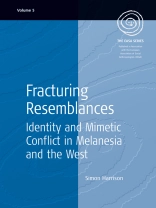Western societies draw crucially on concepts of the ‘individual’ in constructing their images of the ethnic group and nation and define these in terms of difference. This study explores the implications of these constructs for Western understanding of social order and ethnic conflicts. Comparing them with the forms of cultural identity characteristic of Melanesia as they have developed since pre-colonial times, the author arrives at a surprising conclusion: he argues that these kinds of identities are more properly and adequately viewed as forms of disguised or denied resemblance, and that it is these covert commonalities that give rise to, and prolong, social divisions and conflicts between groups.
Table of Content
Acknowledgements
Introduction: Order, Conflict and ‘Difference’
Chapter 1. Proprietary Identities
Chapter 2. A Phenomenology of Trademark Ownership
Chapter 3. Mimesis and Identity
Chapter 4. Difference as Denied Resemblance
Chapter 5. Property, Personhood and the Objectification of Culture
Chapter 6. Cultural Piracy and Cultural Pollution
Chapter 7. Cultural Boundaries, Cultural Ownership
Chapter 8. Power and the Negotiation of Identity
Chapter 9. Identity as a Scarce Resource
Chapter 10. The Politics of Alikeness
Conclusion: Cultural Constructions of ‘Cultural Identity’
Bibliography
Index
About the author
Simon Harrison is Reader in Social Anthropology at the University of Ulster, and has carried out ethnographic fieldwork among the people of Avatip in Papua New Guinea. He has published extensively on Melanesian warfare, ethnopsychology, cultural identity, and indigenous forms of intellectual property.












